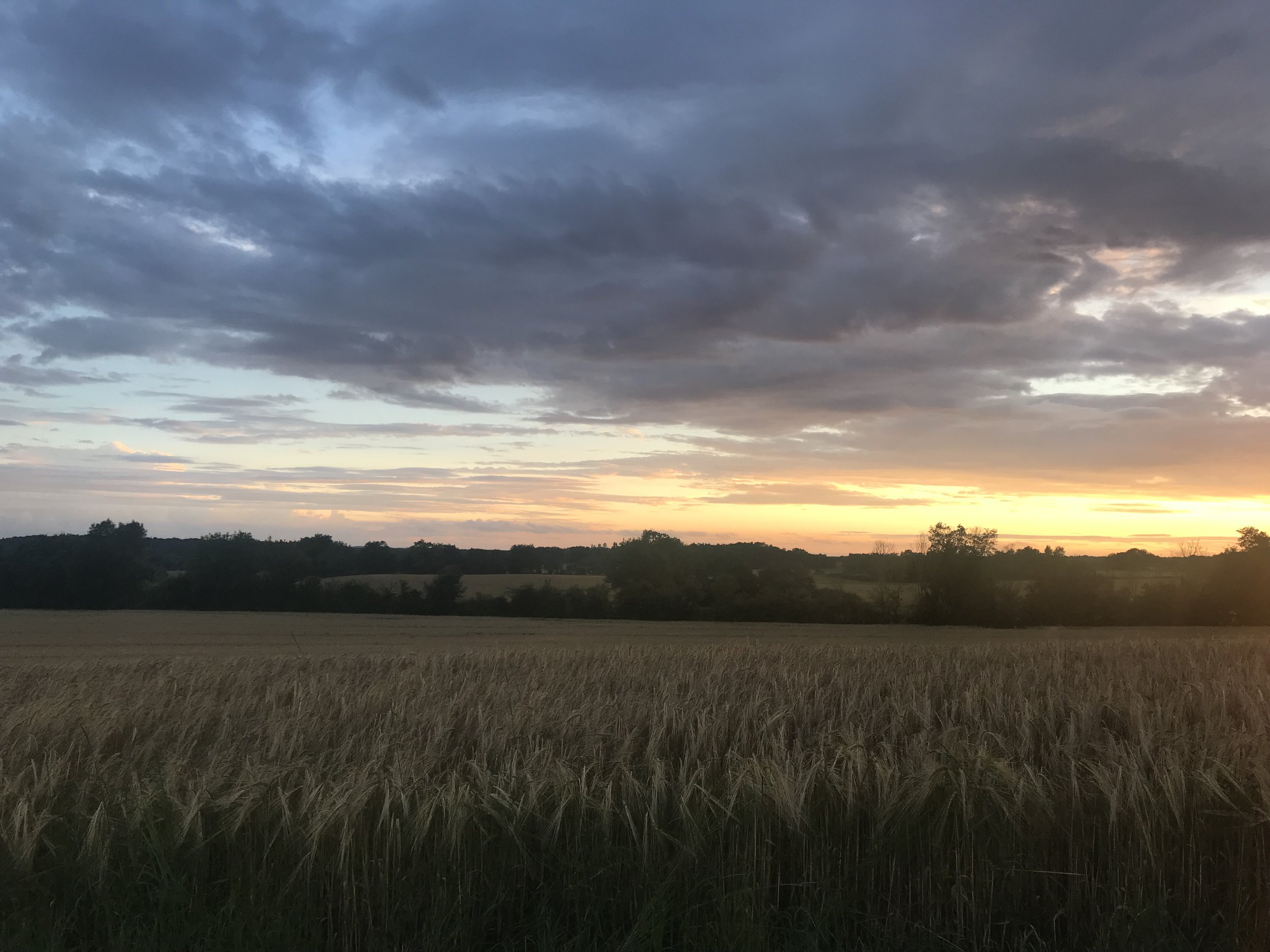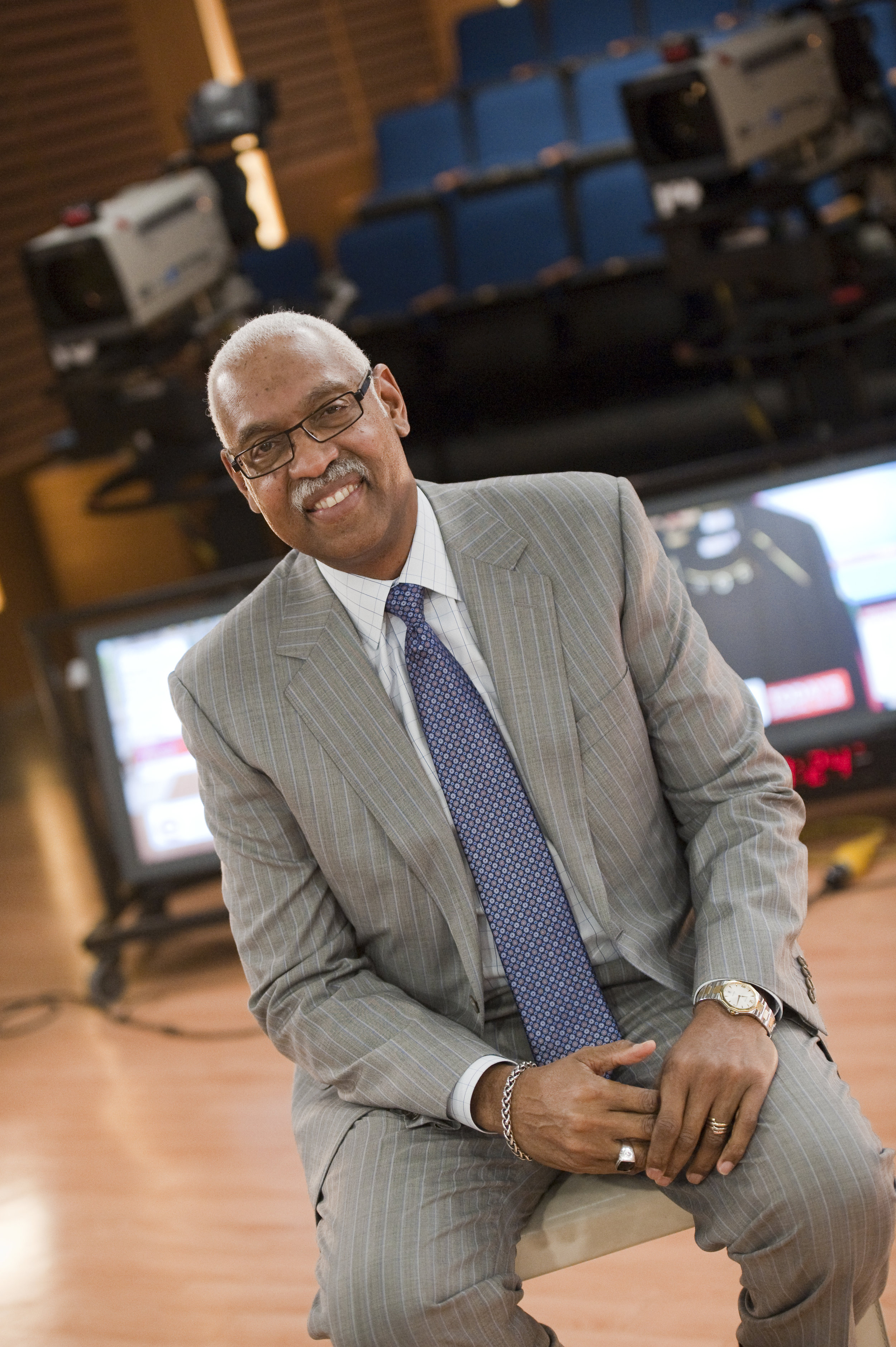Our first full day in France brought a forecast of cold rain, but it also brought an energy of excitement as classes began. After breakfast, scales and arpeggios spilled into the chateau’s hallways. We were sequestered together inside the house, except for any brave soul who dared to warm-up in the other building.
The first sounds of a summer program can often be fraught with anxiety, as peers begin to hear each other sing. However, I found the energy to be different than other programs that I have attended. There was a positivity and excitement surrounding the opportunity to hear all the different voices. We strategically positioned ourselves close to coaching rooms in order to appreciate the luscious tones. But really, eavesdropping could not be easier. The sounds of Glenn’s coaching room on the ground floor travel through one of the house’s staircases and fills each of the upper floors. I initially felt nervous to expose my voice. However, as I prepared for my first coaching, I was inspired and comforted by the sounds of my colleagues at work. I realized that we’ve already established a sense of support for each other, and because of this, we were finding great enjoyment in meeting each others’ voices.
I feel that I should introduce myself since you’ll be hearing from me a lot over the next few weeks. My name is Wesley Diener, and I’m from Vienna, Virginia, which is close to Washington, D.C.. I’m a baritone, received my undergraduate degree from the University of Virginia, and will be applying to graduate programs in the fall. In addition to singing, I’ve enjoyed work as a stage director and educator at children’s theatres. An interesting fact is that I chose to attend this program without having met any of the faculty or other singers. As I dreamed about summer possibilities last year, I came across CLA, which had been highly recommended to me by various friends. I was immediately drawn to the individualized nature of the program’s structure. We receive daily coachings with two different faculty members, in addition to group French classes, private French sessions, and ensemble rehearsals in the evenings. It also helps that I fell in love with France when I visited for a few months in 2016. I am so pleased to be here working with the wonderful singers and faculty, and it has already surpassed my expectations. Attending a program without any previous acquaintance can be slightly frightening, and I’m thankful for the immediate warm welcome that I received. I have already profited greatly from the intensive and enjoyable coachings, and I’m looking forward to getting to know everyone even better.
That’s enough about me! I plan to spotlight some of the other singers and faculty members in future posts, and I’m sure that you’ll find their stories very interesting.
As the day progressed, we became even more comfortable with each other, and there was a buzz of compliments circling the rooms. Since we can hear coachings so clearly but can’t always see into rooms, there have been many humorous dialogues between singers trying to link a voice to its owner. My favorite part of the day was the ensemble rehearsals. Personally, I most value the collaborative atmosphere of opera, and while there is a special connection between pianist and singer, I find the creative energy to expand dramatically when more than two people are involved. Ensemble rehearsals also call for pre-rehearsal preparation amongst ourselves, much of which took place in each other’s bedrooms. I witnessed greater bonds forming between singers, as we shared the responsibility of preparing and practicing.
Our strengthening community aptly concluded the day with a group walk along the nearby roads. Taking advantage of the day’s first dry hour, we appreciated the setting sun and roaming sheep. Conversations ranged from directing philosophies to horoscope signs, and by the end, we agreed that there will be many more group walks to come.






















